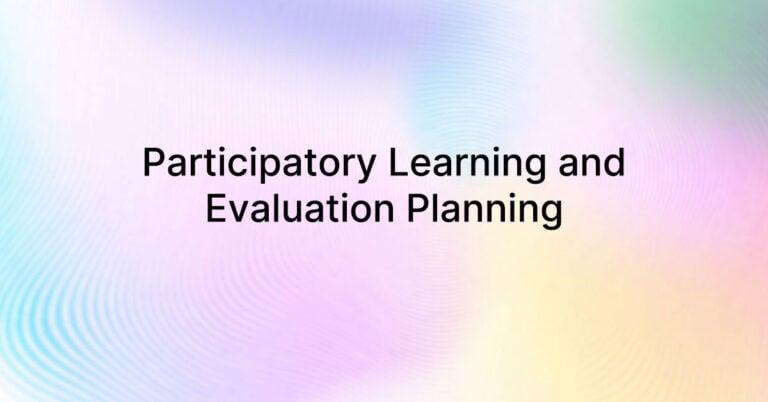This post is part of an ongoing series of updates to our Participatory Philanthropy Toolkit. Each update aims to highlight relevant challenges, offer practical solutions, and ensure that the toolkit evolves to meet the changing needs of funders working to integrate participatory practices that share decision making, build trust, and shift power. Stay tuned for more insights and tools in future installments.
When we began our work as participatory philanthropy practitioners 15 years ago, it was rare for funders to pay participants for their contributions to participatory processes. We are encouraged that over the past several years, as more funders begin to center equity in their work, their practices around compensation have changed and grown. And as the sector continues to embrace participatory approaches that include people impacted by the work of philanthropy, we would like to see equitable compensation for participants become the norm.
Compensating participants equitably benefits not only participants, but also funders. It may help funders live up to their equity and inclusion principles. Because it reduces barriers and increases incentives for participants, funders have better opportunities to attract a range of qualified participants. For these reasons and more, funders should not see compensation as an extra expense, but as a productive part of the decision-making mechanism that moves resources to the people and communities at the heart of their work.

Click here for resources to help you identify good practices, consider the appropriate financial and legal issues, and reflect on the tangible and non-tangible benefits of compensation.
We believe that monetary compensation is necessary in most cases, but is insufficient on its own. Funders’ participatory practices should be designed to offer other tangible and intangible benefits, as well. We suggest funders consider “radical hospitality” to create inclusive, accessible, and welcoming environments. We also recommend funders consider a range of alternatives to cash payments, such as gift cards and reimbursement for education expenses. Whatever funders choose, we suggest they make sure to understand their time and money commitments upfront, reviewing this new tool and taking advantage of other resources, such as the Participatory Philanthropy Toolkit’s “operating budget checklist.”
In this resource, we focus on the practical aspects of compensating participants. We offer checklists of good practices; summarize different legal frameworks for offering compensation; and provide ideas for alternatives to cash payments and what kinds of intangible benefits participants might experience.
We also offer here tips on how to handle some of the trickier issues that might arise when compensating participants:
Calculating compensation
A fixed stipend may not amount to a sufficient hourly wage once you count the full amount of time participants work. Instead, take the hourly rate you typically pay an expert consultant for similar work, multiply that rate by a realistic estimate of the number of hours you expect a participant to spend on the process, and plan to pay that amount.
Think of compensation as a necessary cost of good grantmaking. Funders likely wouldn’t launch a grantmaking program without a budget that covers staff costs. Similarly, don’t launch participatory processes without a budget that would cover the cost of compensating participants.
Identifying an appropriate compensation plan
Be sure participants understand that most forms of compensation should be reported as taxable income, and encourage them to assess how it could affect their eligibility for any public benefits. Consult with them about adjusting the timing of payments or amounts to fit their circumstances. Offer these options upfront so participants don’t need to request alternatives.
Reducing steps to receive compensation
Funders often have cumbersome payment processes that require recipients to create accounts with usernames and passwords and submit extensive personal information. Participants may find the systems unfamiliar, uncomfortable, or overwhelming, and, if a payment is to be relatively small, they might even choose not to pursue payment. These administrative hassles are not only a practical burden, but they can also further entrench harmful power dynamics among funders and their participants.
Work with your administrative team to understand exactly what participants will need to do in order to receive compensation. Walk through the process yourself, if possible. If there are steps you can remove or take on yourself to reduce the burden for participants, do so. Consider providing additional compensation to cover participants’ time spent on administration. Also, share information about how to receive payments with participants at the time you reach an agreement with them and not after the work has been completed.
For additional takes and resources around participant compensation, see:
- Urban Institute’s Equitable Compensation for Community Engagement Guidebook
- Georgia Booth’s 10 Thoughts About Compensating Girls & Youth Activists
- LeapAmbassadors’ How Foundations Can Compensate Stakeholders and Melinda Tuan’s Shared Insight’s approach
About the authors: Winifred Olliff and Katy Love led Shared Insights’ Participatory Climate Initiative.

Winifred Olliff







